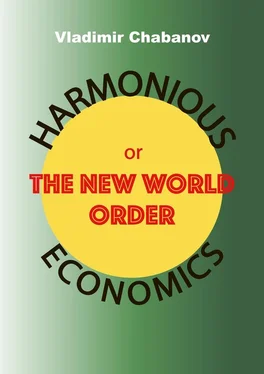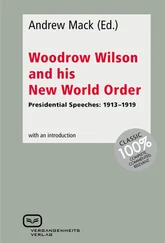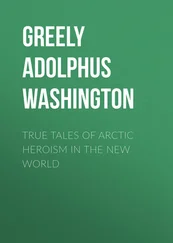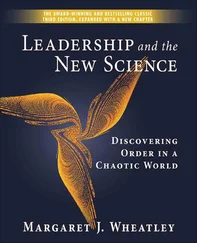As the result, the West developed an unprecedented aggression towards all other peoples, in particular, towards Russians, as people of different cultural values. Indeed, the European hatred for Russia has existed for a long time. It is even more deeply rooted than state competition or ideologic discord. For instance, the motto “ Drang nach Osten ’ (“ drive toward the East ’) was coined in the times when Russian tribes living along the Volkhov and Dnieper rivers were completely unfamiliar with statehood. It was first proposed by Charles the Great in the eighth century, then it was taken up by the first leaders of the Holy Romain Empire; later – adopted by the Anglo-Saxons.
This hatred was evoked by Mikhail Lomonosov, Alexander Pushkin and Ivan Turgenev. “ There is no other nation about whom as many lies, absurdities and calumnies have been made up, as there have been about Russians ’ (Empress Catherine the Great, 1729—1796). “ We should not deceive ourselves. The hostility of Europe is too evident: it does not reside in the chance combinations of European politics, or in the ambition of any of the state leaders, but in the key European interests ’ (N. Danilevsky, nineteenth century). “ And there is not a piece of slander that Europe would not circulate against us ’ (Fyodor Dostoevsky) 34 34 Cit. ex F. Dostoevsky, A Writer’s Diary. Translated by Kenneth Lantz. Abridged edition (Northwestern University Press, Evanston, Illinois, 2009)
.
In total, the centuries-long western policy towards Russia may be described in the following way: “ Europeans need an ugly Russia : barbarian, so that they could ‘civilize’ it according to their own taste; dangerously big, so that they could split it; aggressive , so that they could set up a coalition against it; reactionary and religiously decaying , so that they could break in with their propaganda of Reformation and Catholicism; and economically insolvent , so that they could claim its ‘unused’ territories, its raw materials, or, at least, its profitable trade agreements and concessions ’ (philosopher I. A. Iliyn). Though these words were written 90 years ago, they still ring a bell with the modern people.
Moreover, throughout its history, whenever Europe was in trouble, it was helped out by Russia, who never saw its assistance returned. On the contrary, Europe always allied with the enemies of Russia, be it during Russia’s struggle against the predatory eastern hordes, the Time of Troubles, the wars against Turkey, all other wars or even the present day international terrorism counteraction. “ No Russian service for the all-European causes (the Seven Years’ War, fight against Napoleon, the rescue of Prussia in 1805—1815, the rescue of Austria in 1849, the rescue of France in 1875, the peaceful politics of Alexander III, The Hague Conferences, or the sacrifice in the war against Germany in 1914—1917) is valid in front of this fear; no noble and selfless actions of the Russian leaders were capable of stop this European ranting ’ (I. A. Iliyin).
The West has always been hostile to Russia. Thus, as the February and the October revolutions of 1917, together with the liberals, the Bolshevism and the subsequent events, were not born in the Russian soil, they were welcomed by the “progressive’ movements of the West. Besides, “ All [revolutionary] movements in Russia emerged under the influence of Western Europe and bore the imprint of the prevailing European beliefs ’ (Prince P. A. Kropotkin).
Even during World War II, besides the official allies of the Nazi Germany (Finland, Romania, Slovakia, Croatia, Hungary, and Italy), the USSR had to face 18 thousand volunteersfrom the occupied Netherlands, 12 thousand Danish, Swedes and Norwegians, 6 thousand French, 4 thousand Walloons, and 4 thousand Spanish (data provided by the Major General of Wehrmacht von Buttlar). The Hitlerites were well supplied with raw materials and arms from France, Slovakia, Poland, Sweden, the Netherlands, Denmark and even Switzerland, so the USSR was in fact fighting against entire Europe.
A real genocide of Russians, including their history, culture and language, was under way after the collapse of the USSR in the Baltic countries, in Ukraine and many CIS countries; it has been invariably and cynically welcomed by the advocates of “ human rights ’ in the West. If it views the adversaries of black people as racists, those of the Jewish – as anti-Semites, and those of Russians – as human rights activists. These are links in one and the same chain, the result of one centuries-long policy. Useless to call for truth and justice, to try to evoke the nobility or even basic decency. For all of these are absent.
The fundamental incompatibility of the Russian and the western world is further proven by the observation that as soon as Russia became closer with the West, it faced decline, new troubles and cataclysms. Indeed, only friendship with the Anglo-Saxons can be more devastating than the war with them. “ To be an enemy of America can be dangerous, but to be a friend is fata l’, warned Henry Kissinger. The West has actually taken advantage of Russia’s credulity to proceed to information attacks against the country, to deceive, to rob and to humiliate. N. Berdyaev claimed that Marxism first appeared in Russia as an “ extreme form of westernism ’. It conforms better with the western struggle for existence than with the Russian struggle for the truth. This is why there is no surprise in the deplorable result of such assimilations, as the desire to impose foreign ideas in an unsuitable soil cannot result in success. Besides, the current “reforms’, ugly and deceptive as they are, were not conceived in Russia.
“ The West has been and will be God’s punishment for us, which we still fail to realize. We are stuck in the western mud up to the ears, and we are good. We have eyes, but fail to see; we have ears, but fail to hear, and our heart is ignoran t’ (Theophan the Recluse of the Vysha Monastery). This thought is echoed by professor Yu. M. Osipov: “ The tragedy of Russia lies in its interaction with Europe ’. For this reason, only then Russian revival started when the country discarded western values and was nourished by its own roots. And this is precisely what we witness today.
Thus, the confrontation of Russia and the West is of fundamental nature. It is produced by the collision of different civilisations, and not only by simple disagreement with certain actions, ideology, leaders, or their policy. Due to its uncompromising stand, the West cannot reconcile itself neither with Russia’s difference, not with its religion, its originality or wealth.
The processes described above have left us too different from one another. While a western person defends his individuality, a Russian affirms his belonging to a greater entity. Western people are attached to law, to private property and to man-made justice; Russians are inspired by fairness, social prosperity and justice of Heaven. Where they attempt to resolve problems by force, we act through compromise and agreement.
On the other hand, western society has also created a unique culture, has produced greatest philosophy, painting, music, architecture and poetry. Western pragmatism has improved economic systems, social structure and everyday life. It has generated modern science, education and art. Thus, it has significantly influenced all aspects of the daily life in Russia and the entire world. This attitude has also shaped the mind of the Russian westernists, who adore western culture and do the best to introduce western values on the Russian territory. Above all, the west has in many ways been regarded as a standard of “good’ development.
Читать дальше












